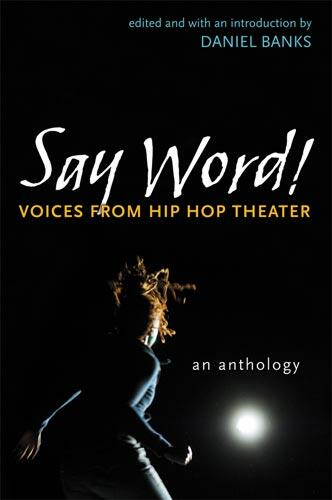Say Word!
Voices from Hip Hop Theater
Compelling plays by leading Hip Hop artists writing in the language of today
Description
The phenomenon known as Hip Hop encompasses a global, multiethnic, grassroots culture committed to social justice and self-expression through performance. Hip Hop Theater emerged from that culture, mixing spoken-word performance with music and dance and marked by Hip Hop's strong sense of activism and resistance. Hip Hop Theater is engaged with questions of identity – culture, heritage, ethnicity, class, gender, sexuality, and difference—narrating the experiences of historically marginalized peoples and putting them in dialogue with other oppressed communities.
Say Word! Voices from Hip Hop Theater collects eight works by contemporary artists who confront today's compelling issues, ranging from racial profiling and police brutality to women's empowerment and from the commercial exploitation of Hip Hop to identity politics. Editor Daniel Banks has assembled work by Abiola Abrams, Zakiyyah Alexander, Chadwick Boseman, Kristoffer Diaz, Rha Goddess, Antoy Grant, Joe Hernandez-Kolski, Rickerby Hinds, and Ben Snyder, augmented with an extensive introduction and other informative commentary. The book also includes a roundtable moderated by Holly Bass and featuring Hip Hop pioneers Eisa Davis, Danny Hoch, Sarah Jones, and Will Power, a conversation that traces the roots of Hip Hop Theater and imagines its future directions.
Daniel Banks, Ph.D., is cofounder of DNAWORKS, an arts and service organization dedicated to fostering artistic expression and dialogue and focusing on issues of identity, culture, class, and heritage. He created and directed the Hip Hop Theatre Initiative and presents workshops on Hip Hop Theater performance across the globe.
Reviews
"...demonstrates that no matter the risk, and despite resistance, exploitation, oppression, or devaluation, hip hop culture can't stop, won't stop thriving."
- Jessica Pabon
—Jessica Pabón, TDR: The Drama Review

